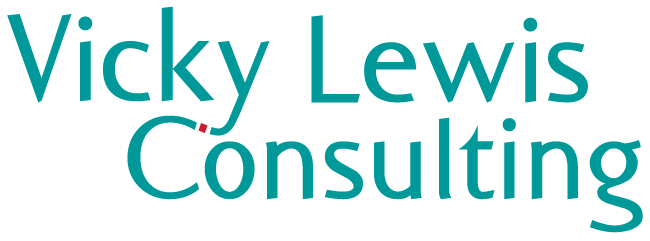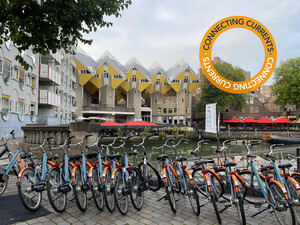International Strategy for Higher Education Institutions
International Strategy for Higher Education Institutions

Posted on by Vicky Lewis
 You know how you attend an amazing conference, come away buzzing with ideas, then day-to-day commitments take over and push all that learning to the back of your mind? We figured we’d try to maintain momentum following the recent EAIE annual conference in Rotterdam.
You know how you attend an amazing conference, come away buzzing with ideas, then day-to-day commitments take over and push all that learning to the back of your mind? We figured we’d try to maintain momentum following the recent EAIE annual conference in Rotterdam.
So we got together to chat about the themes that really resonated with us. This blog includes some of our reflections in an effort to share our learning with those who were unable to attend the conference – and to reignite enthusiasm among those who were there.
We both picked up the theme of responsible internationalisation. In the host country for the conference, the Netherlands, there have been challenges related to insufficient accommodation for international students. These have led to resentment from local communities where expanding international student numbers have had negative impacts on services and facilities. These challenges are familiar to those of us working in international education in the UK, Canada and elsewhere.
It is so important that universities proactively discuss their growth plans with local government, developers and other key players in their region, ensuring these plans are sustainable in the context of local infrastructure. The drive for global engagement should not compromise universities’ civic and regional responsibilities.
The need for internationalisation to be inclusive was a theme across several sessions. Vicky was impressed by the Inclusive Comprehensive Internationalisation project, a multi-institutional, multi-country project co-funded by the EU’s Erasmus+ Programme.
The vision is to ‘help co-create equal opportunities with and for all students to benefit from internationalisation, regardless of their background, orientation or capability, and to improve their international and intercultural competencies. We need every voice to help create a peaceful and sustainable world’.
Students are heavily involved in this, at institutional and network level. A guiding principle is the notion that ‘we don’t know what we don’t know’ so we need to ask other people what our blind spots are.
Newcastle University, a deserving winner of the 2023 EAIE Award for Excellence in Internationalisation, strives to be an internationally inclusive institution. This shines through within their international strategy, which emphasises inclusive approaches to student mobility and staff development and builds on their status as a University of Sanctuary, supporting refugees and asylum seekers.
It’s also evident in the people-centric approach adopted when consulting on their strategy, inviting stakeholders to submit videos capturing their aspirations for Newcastle’s global engagement, which then fed into the set of values-led global pledges at the heart of the strategy.
In a session on ‘Global Citizenship from an EDI perspective’, the importance of levelling the playing field for international students and graduates when they are seeking employment was highlighted.
A 2019 Australian study (see this pdf) showed that only 26% of international graduates who stayed in Australia were in professional roles, as compared to 47% of domestic graduates. There are both structural impediments and cultural bias at play here and – behind the statistics – there are huge levels of personal disappointment, loss of face and financial hardship as a result of not being able to find employment.
One way universities can help to address this is by developing work-integrated learning (linked to the student’s discipline) as part of the curriculum to build up the experience, confidence and networks of international students.

Unsurprisingly, we noticed a plethora of sessions and conversations about AI. Sirin attended a campfire session on this topic which allowed for informal exchanges of good practice. Despite initial ethical concerns about the ways in which the technology might be used (or misused), she came away with a broader understanding of its potential. Using it for summarising texts, translating speech into different languages and assisting with routine tasks can save an enormous amount of time, potentially leading to a better work-life balance.
We experimented with getting Zoom’s AI summary tool to summarise our conversation about the conference. It did a reasonable job of picking out key themes and provided a useful starting point for structuring this blog (but we’re not ready to hand over the writing task just yet!).
We agreed that AI needs to be integrated as a valuable tool to enhance both teaching and services at universities. Staff are on a steep learning curve so professional development is required - especially if they are to guide students to use it responsibly and ethically.
Or will it be the students guiding the staff?
Judging by the opening plenary of the conference, at which Jahkini Bisselink and Hajar Yagkoubi delivered an insightful speech on what makes Gen Z tick, students from this age group are one step ahead not only when it comes to technology, but also when it comes to ethical considerations.
A key takeaway from this session and the conference as a whole was the need for ‘actions not words’.
Gen Z was described as an activist generation (though this can manifest itself in a range of ways). Many are frustrated at the inaction and denial of those in charge when it comes to navigating the series of crises our world is facing (‘polycrisis’): from climate emergency to global pandemic to war to inequity and exploitation.
They are willing to walk away from brands where there is a dissonance between their advertising campaigns (and stated values) and the way they treat their employees and those in their supply chain.
Universities take heed! If we don’t walk the talk, students are likely to vote with their feet.
EAIE INCLUSIVITY ARTIFICIAL INTELLIGENCE RESPONSIBLE INTERNATIONALISATION GEN Z IC CAFE
|
|